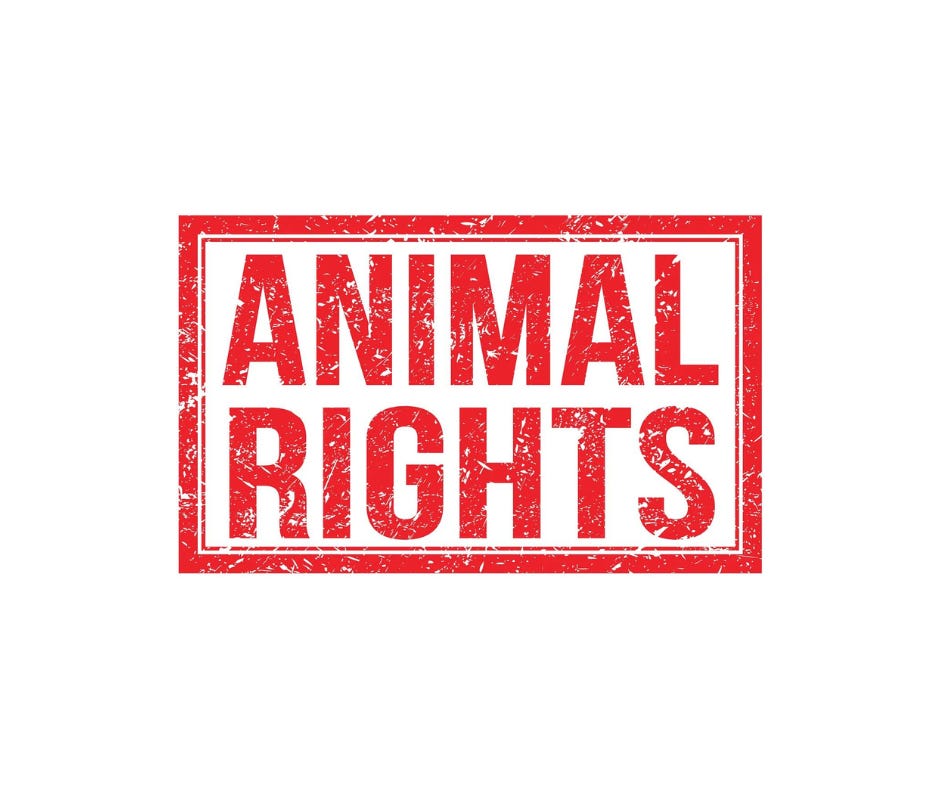Have you ever wondered why some animals are cherished as pets, given names, and treated as family members, while others are confined in factory farms, subjected to harsh conditions, and ultimately slaughtered for food? This stark distinction is rooted in speciesism and carnism, societal biases that assign varying degrees of moral worth to different species. Speciesism denotes the belief that humans are superior to other animals and can therefore use them for their own purposes, while carnism refers to the invisible ideology that conditions us to eat certain animals.
‘‘Addressing speciesism and carnism requires education, policy reform, cultural shifts, and technological innovations. By promoting ethical veganism, strengthening animal welfare laws, and fostering empathy, we can create a more compassionate world for all beings.’’
These biases not only shape our attitudes and behaviors towards animals but also have profound implications for human health, environmental sustainability, and social justice. Addressing speciesism and carnism is not just about improving animal welfare; it’s about creating a more ethical, equitable, and sustainable world for all beings. By challenging these entrenched beliefs and practices, we can pave the way for a society that values compassion and respects the inherent worth of all living beings. Let’s explore practical steps toward achieving this transformation.
Education and Awareness
Educational Programs Imagine a world where children learn about animal rights and environmental ethics alongside traditional subjects. By integrating these topics into school curricula, we can cultivate empathy and respect for all living beings from an early age.
Public Awareness Campaigns Social media, television, and community events are powerful tools for raising awareness. Campaigns that highlight the ethical and environmental impacts of speciesism and carnism can inspire meaningful conversations and encourage change.
Ethical and Philosophical Shifts
Promote Ethical Veganism Ethical veganism goes beyond dietary choices—it’s about reducing harm to animals in all aspects of life. Sharing stories and resources about ethical veganism can inspire individuals to adopt more compassionate lifestyles.
Encourage Compassionate Living Cultivating a culture that values the inherent worth of all animals involves simple actions like supporting animal sanctuaries and sharing positive narratives about animals.
Policy and Legislation
Animal Welfare Laws Stronger legal protections for animals are essential. Advocating for legislation that recognizes animals as sentient beings deserving of rights can lead to significant improvements in their treatment.
Subsidize Plant-Based Foods Making plant-based foods more accessible and affordable through government subsidies can promote healthier dietary choices and reduce reliance on animal agriculture.
Cultural and Social Change
Cultural Shift Movies, literature, and influential figures play a significant role in shaping societal norms. Promoting plant-based diets and compassionate lifestyles through popular culture can accelerate cultural shifts toward more ethical choices.
Community Support Joining or forming communities that advocate for animal rights and veganism provides resources and encouragement for individuals transitioning to compassionate living.
Scientific and Technological Advances
Develop and Promote Alternatives Investing in research and development of lab-grown meat and plant-based substitutes offers viable alternatives to traditional animal products, satisfying consumer demand without the ethical concerns.
Sustainable Practices Supporting sustainable agricultural practices that prioritize animal welfare and environmental stewardship can mitigate the negative impacts of industrial animal farming.
Psychological and Behavioral Approaches
Behavioral Interventions Understanding and modifying behaviors rooted in speciesism and carnism can be achieved through cognitive-behavioral strategies, fostering attitudes that prioritize compassion toward all species.
Mindfulness and Empathy Training Programs aimed at cultivating mindfulness and empathy toward non-human animals can deepen our connection with them, promoting a more empathetic worldview.
Intersectional Approaches
Link to Other Social Justice Issues Recognizing the interconnectedness of speciesism with issues such as racism and sexism strengthens advocacy efforts. Addressing these intersections fosters a more inclusive and impactful approach to social justice.
Conclusion
Transforming our relationship with animals and dismantling the structures of speciesism and carnism requires collective action across education, policy, culture, and technology. By embracing compassion, empathy, and ethical consciousness, we can create a world where all beings are valued, respected, and free from exploitation. Together, let’s strive towards a future where our choices reflect our commitment to justice, sustainability, and the well-being of all sentient beings.
Sources:
Get my new booklet ‘‘25 Vegan Myths Debunked!’’ This concise guide is invaluable for anyone curious about veganism, offering evidence-based insights and practical guidance to navigate vegan living confidently. All profits benefit the promotion of animal rights worldwide!
Visit Our Amazon Store!
Notice: As an Amazon Associate, we earn a commission from qualifying purchases that help promote animal rights worldwide!
General Resources
Books:
Dominion: The Power of Animals in Nature and in Our Imagination by Matthew Scully
Animal Liberation by Peter Singer
Eating Animals by Jonathan Safran Foer
A Billion Hungry Mouths: Feeding the World Without Consuming the Planet by Colin Tudge
Websites and organizations:
Documentaries:
Articles:
"The Case for Animal Rights" by Tom Regan
‘‘Why We Love Dogs, Eat Pigs, and Wear Cows: An Introduction to Carnism’’ by Melanie Joy
‘‘Animal Rights: The Abolitionist Approach’’ by Gary L. Francione
‘‘Fellow Creatures: Our Obligations to the Other Animals’’ by Christine Korsgaard
Seeds of Compassion: Finding Jesus Christ in a Vegan World by Michael Corthell
Receive a single informative article daily at 12:01 AM by email. Explore my homepage with exciting vegan and plant-based news content and delightful and delicious recipes for additional updates. Stay connected to the vegan world and all it has to offer.
Visit The Vegan Project Global our Facebook page for more vegan outreach and education.
Also, visit our new YouTube channel
The information on this vegan/plant-based blog is for general informational purposes only. It is not intended as legal, medical, or professional advice. Readers should consult with appropriate professionals for specific advice tailored to their situation. The blog owner is not responsible for any reliance on the information herein.





